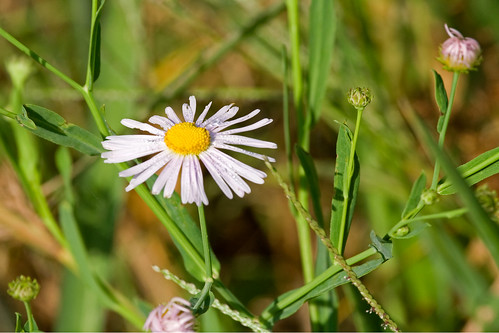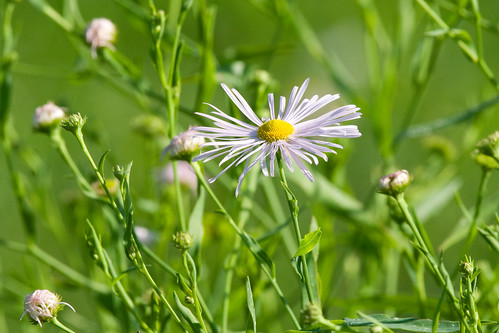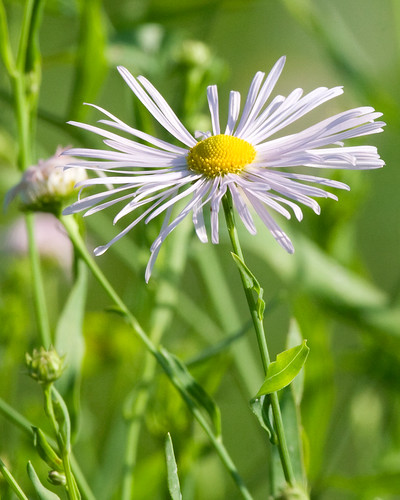Here is a look back towards the check station as I walked along the berm:

-- from jward199 -
Decurrent false aster, sometimes know as false starwort, is a big river floodplain species. Populations of decurrent false aster have declined as wetlands have been drained and converted to agricultural crop production. Decurrent false aster is listed ENDANGERED by the state of Illinois and THREATENED by the U.S. Fish and Wildlife Service. Decurrent false aster grows in wetlands, on the borders of marshes and lakes, and on the margins of bottomland oxbows and sloughs. Historically, this plant was found in wet prairies, marshes, and along the shores of some rivers and lakes. Decurrent false aster favors recently disturbed areas and flooding may play a role in maintaining its habitat. Current habitats include riverbanks, old fields, roadsides, mudflats and lake shores. Decurrent false aster prefers a moist habitat but can tolerate drought.
I found a good amount of it growing in the field behind the trees along Banner Dike Road. This field is surrounded by a berm; it had beeen flooded until early summer this year, which may have helped the asters. Here are some photos of the lovely Decurrent False Asters:




-- from jward199 - (?)
This area is just south of the area that Capital Resources is trying to mine. Here is an aerial map showing the area. You can see Banner Marsh, a reclaimed coal mine (and it sure looks it!) as well as Rice Lake. The red marks the outline of the proposed mining site. I was walking around the berm just below the proposed site, the irregularly shaped light-green area surrounded by a deteriorating levee. If the Decurrent False Asters are growing here after the flood, you can be sure they are growing in the permit area that was flooded during the spring and early summer.

No comments:
Post a Comment